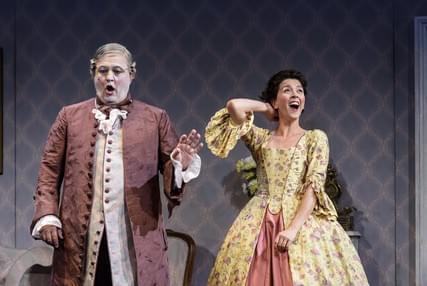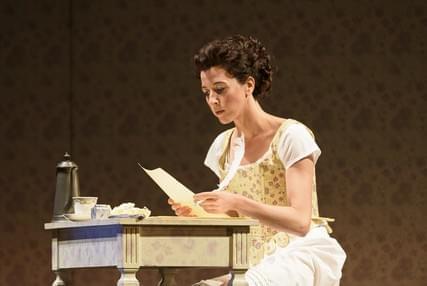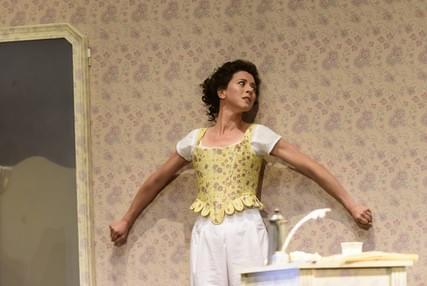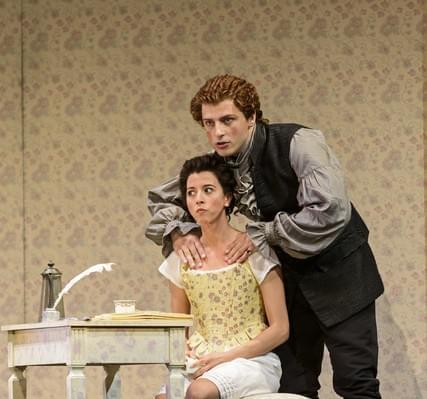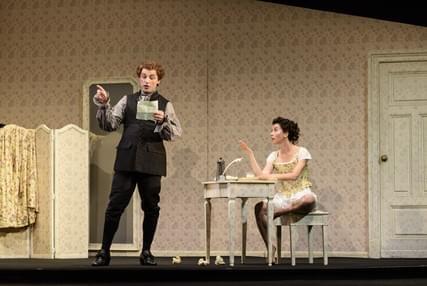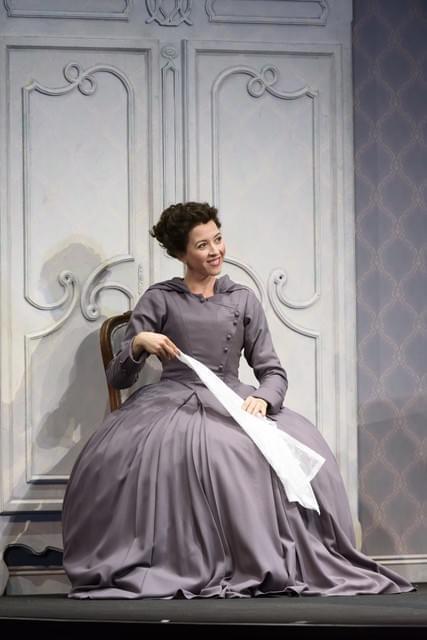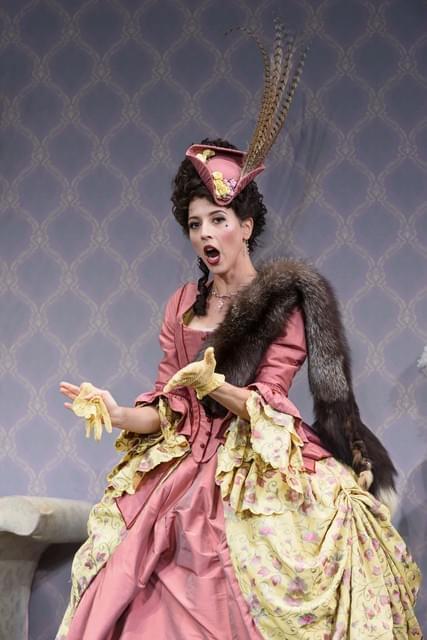
2017
July
13
17:50
July
15
17:50
July
18
16:50
July
22
16:50
July
25
16:50
July
28
17:50
July
30
16:35
August
02
16:50
August
05
16:50
August
09
16:50
August
14
16:50
August
17
16:50
August
20
16:35
August
23
16:50
Cast
| Don Pasquale | Renato Girolami | |
| Dr Malatesta | Andrey Zhilikhovsky | |
| Ernesto | Andrew Stenson | |
| Norina | Lisette Oropesa | |
| Servant | Anna-Marie Sullivan |
Giacomo Sagripanti
ProductionMariame Clément
About
A critically acclaimed revival directed by Mariame Clément, this opulent period staging catches the sparkling essence of Donizetti’s tuneful tale of an old bachelor’s romantic delusions and the young lovers who outwit him.
Pasquale, a man no longer in the first flush of youth, hopes to marry and produce an heir, being dissatisfied with the current holder of that position, his nephew Ernesto, who has had the audacity to fall in love with Norina, an impoverished widow. The plot thickens, twists and turns as Pasquale’s supposed friend Dr Malatesta assists Ernesto and Norina in complex and increasingly vindictive deception.
Don Pasquale’s witty musical score combines graceful lyricism with rollicking comedy, all fuelled by the seductive rhythm of the waltz.
London Philharmonic Orchestra

Interview on Schmopera
Lisette Oropesa is interviewed in Schmopera

Summer Newsletter - Glyndebourne!
Summer Newsletter - Glyndebourne!
Reviews
Buffa as blood sport: Mariame Clément's Don Pasquale at Glyndebourne
Vocally, Oropesa was well ahead of the pack. Her command of phrasing of the coloratura is exceptional: she can accelerate into a run and shape the dynamic as she leads up to a high note which she duly nails in the middle, with no vibrato needed to mask any possible inaccuracy. The timbre is always perfectly smooth and controlled – even when executing complex runs and complex acting moves – and there’s plenty of power to ensure that she’s being heard above the orchestra. Oropesa’s voice had something of a hard edge, but that may well have been a deliberate point of characterisation: in the one scene in which Norina genuinely softens, her love scene with Ernesto, her voice acquired a sweetness that was notably absent for much of the evening. It was a properly starry prima donna performance.None— David Karlin • Bachtrack
Review: Don Pasquale (Glyndebourne)
...Lisette Oropesa's show-stealing Norina. The Cuban-American soprano was equal to all her character's skittish bel canto demands. Hilarious, endearing and blest with immaculate timing, she made the cruel challenges of her Act 1 cavatina seem like throwaway lines and single-handedly gave the evening its class.None— Mark Valencia • What's on Stage
Don Pasquale: a cold-hearted comedy at Glyndebourne
Oropesa doesn’t have a huge voice but it’s a carefully placed one that sits absolutely securely but lightly on the roulades. This was a prima donna performance in every sense, and the foot-stamping accolades Oropesa received were totally deserved. At first there was a slightly hard edge to the tone - perhaps it was intended to reflect Norina’s flintiness - but in her Act 1 duet with Malatesta, and during her raging assault on Pasquale in the final act, Oropesa’s accuracy and ease were notable.None— Claire Seymour • Opera Today
Opera review: Don Pasquale at Glyndebourne
Norina (Lisette Oropesa) dozes at her writing desk. Did her husband die of natural causes? It seems unlikely. All greed, wit and wide, sexy eyes, with a sweet, fast vibrato, trills as neat as pinking shears and a prodigious appetite for the texture and flavour of the Italian language, Oropesa holds the performance.None— Anna Picard • The Times
Lisette Oropesa is Outstanding in Glyndebourne’s Admirable Don Pasquale Revival
The stand out performance of the evening was Lisette Oropesa in the role of Norina. Her Norina was a cool customer, ready to use her looks in order to secure financial stability and social respectability and with a contemptuous attitude towards the elderly Pasquale. Her handling of Donizetti’s vocal fireworks and coloratura was absolutely outstanding. The decorative vocal lines flowed with a mellifluous ease and she brought wonderful tone colouring to the vocal line and thrilling top notes.None— Robert Beattie • Seen and Heard International
Don Pasquale- Glyndebourne
Whilst every singer was good in their part, Lisette Oropesa who played Norina was nothing short of a revelation. It wasn’t just her singing that stole the show but her acting abilities, her last laugh instead of being sung, coming out as a snort, her actions, every movement that Oropesa made on that stage was exactly the right one to make and I am not surprised that at the curtain call it was her who made the building cheer, stomp and clap louder than for anyone else.None— Stuart Review • The Stuart Review


